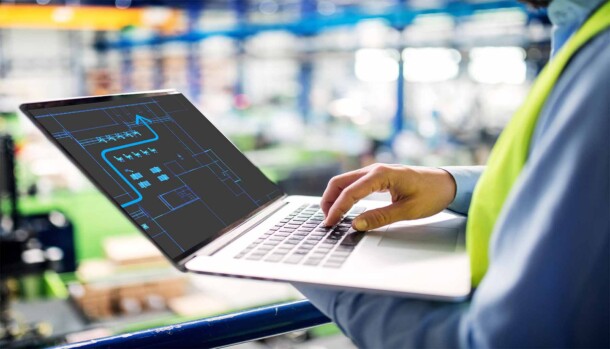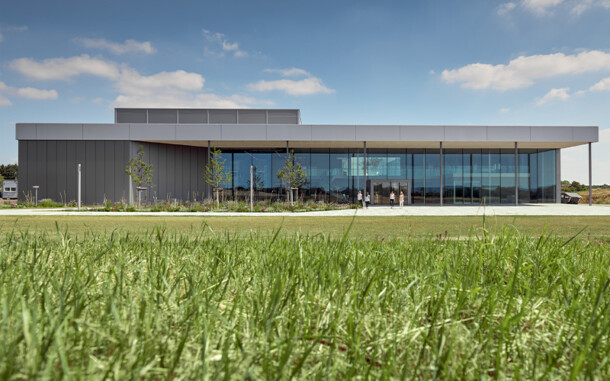material flow simulation
When static methods reach their limits, material flow simulation provides clarity—with digital models for transparent processes and reliable investment decisions.
Customized material flow simulation: Your project, our expertise

We pursue a clear goal: to make your logistics processes more efficient and future-proof in the long term
- Definition of goals, framework conditions, and data basis
- Modeling of the system with processes, resources, and material flow logic
- Development and implementation of simulation scenarios
- Evaluation and optimization based on the simulation results
- Derivation of concrete measures for implementation in real operation
Our services in the field of material flow simulation
Simulation of information and material flows
Modeling complex logistics processes along the supply chain – from manufacturing to delivery.
Data-driven optimization
Identification of bottlenecks, dimensioning of storage and buffer areas, cycle time analysis.
Scenario assessment & investment protection
Evaluation of alternative layouts, capacities, or strategies prior to implementation.
Visualization & Communication
Clear 3D representations for maximum transparency and easy decision-making.
The advantages of material flow simulation
Your ongoing operations will not be disrupted
Material flow simulations are cost-effective
Reduction of throughput times
Pack-and-go model for customer use
Flexibility in adapting to change
Simulation at B. Braun: Factory planning “docs” pull the strings together

The most frequently asked questions about material flow simulation
When should material flow simulation be used?
Material flow simulation is useful when planning new facilities, optimizing existing systems, evaluating investments, analyzing bottlenecks, or comparing different strategies.
How does material flow simulation help to make processes more efficient?
A simulation reveals bottlenecks, unnecessary routes, or waiting times in the material flow. This allows processes to be improved in a targeted manner and increases the speed and stability of the processes.
What advantages does material flow simulation offer in competition?
Optimized material flow enables faster and more cost-efficient responses to customer requirements and market fluctuations – a clear competitive advantage.
Can material flow simulation reduce the workload for employees?
Yes. Smoother processes and better resource utilization reduce manual effort. This increases productivity and reduces the workload on employees.
How does material flow simulation contribute to process optimization?
It reveals weaknesses, highlights potential for improvement, and helps to deploy resources in a targeted manner—thereby avoiding unnecessary costs and improving processes in the long term.
How long does a material flow simulation take?
The duration depends on the complexity of the system and the availability of data. Smaller projects take a few weeks, while larger ones can take several months.